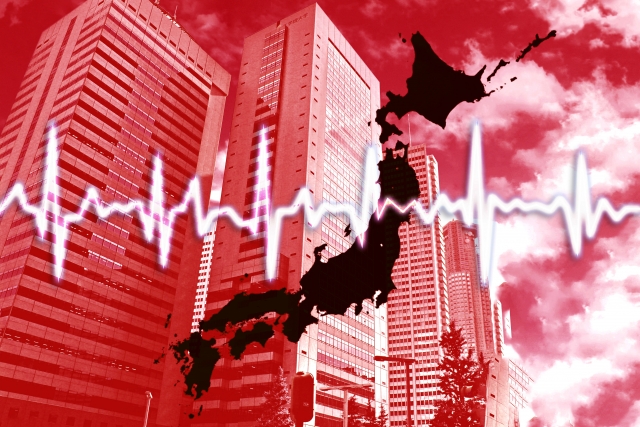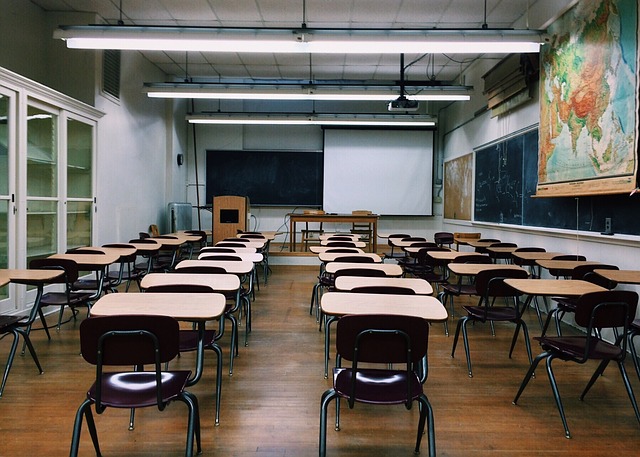January 17th in 1995, at 5:46 am, I was sleeping in bed when it occurred. I was woken up by the shake and saw the light on the ceiling wide-swinging round. It was big enough for me to wake up, but my hometown often has that size of shaking, so I stayed in bed, slept again.
When I got up at about 7 o’clock, TV was on in the salon and my mother was sitting at the front of it. At that moment, I couldn’t understand what had happened while I went back to sleep in a cosy bed.
I stared at the TV screen to try to figure out what was going on.
The ground was literally tumbled, the bridge fell down, the asphalt was torn and crumbled. Viewed from a helicopter, the city of Kobe was covered with black and smoke, I still saw some flames.
6,434 people were killed, mostly by the fire, some of which happened in its old area where it was difficult to reach for fire trucks and ambulances because of narrow paths.

It could happen everywhere
Kobe is nearly 100 km away from my hometown, and it is not a place where they often have earthquakes. I imagine nobody had predicted that an earthquake could have happened there.
People thought earthquakes normally happen in the ocean, but it was not the case this time. The actual epicentre was in the water between Honshu and an island. They say it occurred just under the city. Japan quake epicentre is unexpectable anymore.
It was the biggest and closest earthquake which I have ever had in my life. Although the Tōhoku earthquake brought much bigger damages in 2011, I was not in Japan.
Some people say to me “Japanese people must have a good prediction system of the earthquake and be well-trained.”
I would say, yes and no.
They have a decent system to predict it. They possibly can tell a quake will come in a couple of minutes, but do you think it is enough time to evacuate to somewhere safe?
Evacuation training

If you ask a Japanese what we should do first when a quake happens, the answer will be “going under the tables or desks”. We are trained like that since childhood.
It might be slightly changed nowadays, but I believe it is still more or less same. We have evacuation training at school once or twice per year. What actually happens is:
At the scheduled time, the alarm loudly goes off through a whole school building, and they announce “just now an earthquake happened, please follow the instruction of your teachers.”
The teachers must tell children to go to under the tables or desks, in case something might fall down to their heads. Then they will tell them to evacuate to the schoolyard, moving quickly but calmly.
When the children come out to outside of the building, the teacher counts the number of children to make sure they didn’t miss anyone.
At the closing the training event, the headmaster gives a short speech with a stopwatch in the hand,
“You did very well. It took only X minutes for everybody to evacuate this time. Your action was very smooth and calm. Well done.”
Tsunami signs
When you talk about earthquakes in Japan, you also want to know about Tsunami.
My boyfriend spotted some signs on the streets in my hometown when we visited my family. The town is close to the coast, so some part of the city has a risk of Tsunami.
There are some signs of altitude, telling how high the ground you are standing on is from the sea level. I hope they can help people to know where they should go when it occurs, but some people say it is not about the altitude, more importantly, you just have to go as far from the seacoast as you can.
We met a guy who knew about the big Tsunami happened in Sri Lanka. He said that most of the people survived had motorbikes. So, if you have to live in a place where is at risk of Tsunami, it may be a good idea to buy a motorbike.
Am I afraid of earthquakes?
Yes, I am, as well as the others.
Japan has about 1,500 earthquakes strike every year, minor ones occur on a nearly daily basis.

It is terrible to feel the quake coming to you, you can feel its vibration from the ground, floor and the air. There is nothing you can do, but just remember ‘I need to go to under the table”.
People living in Japan are recommended to keep emergency food and some other things which they may be useful when the electricity or water supply stops. My family has prepared them for years, luckily they didn’t have a chance to use them, yet.
Living in Japan means living with earthquakes. As long as you want to stay in Japan, there is nowhere you can really escape. You can just prepare for it, and don’t forget “Under the Table.”


Comments